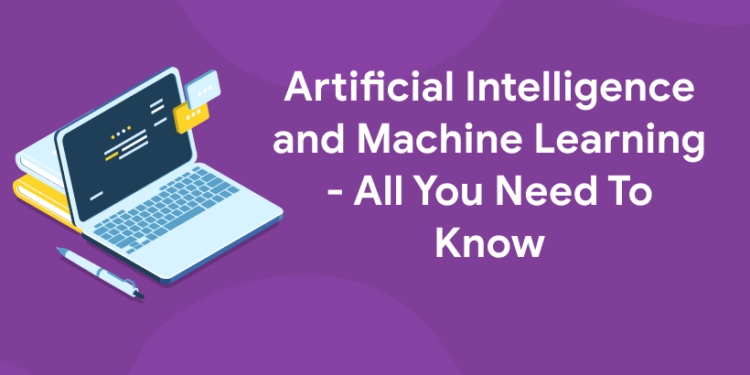Table of Contents
Artificial Intelligence, Machine Learning, and Deep Learning are all buzzwords that sound like they’re completely different things but really just mean slightly different things to different people. Many companies use these terms interchangeably and it’s very easy to get confused as to what they mean. This article will explain exactly what they are, how they relate to each other, and where they’re being used today. You may think you know everything there is to know about AI, but chances are you don’t.
What is AI?
Artificial intelligence is when a machine is able to act and think like a human. Artificial intelligence uses computers to learn things that humans do, such as how to talk, interact, walk or make decisions. AI machines have been able to beat humans at certain tasks for quite some time now. For example, Google’s DeepMind was capable of playing Atari video games better than an average human in 2016. But what about future applications of AI? What will it look like then? Is there a chance we’ll ever be able to achieve true AI? These are all valid questions that often arise around machine learning and artificial intelligence – let’s explore them! This test involves showing humans two different objects (one hidden from view) and asking which one they prefer based on their feelings. If a computer was able to predict with 70% accuracy which objects people would prefer before they actually made their choice, it would pass Turing’s test. However, nobody has been able to create software advanced enough yet – but some scientists believe that we may get there within 30 years.
To know more about data science in the Entri app
What is machine learning?
Broadly speaking, machine learning is a type of artificial intelligence (AI) that provides computers with data and software tools to learn how to perform specific tasks by analyzing examples. The more software is fed information, either via training or experience, the more accurate it can become at performing specific tasks. For example, companies like Google use machine learning algorithms to create self-driving cars; in order to learn how to drive safely, these cars are equipped with cameras and sensors that collect information about road conditions. As a result of machine learning, Google’s self-driving cars have driven millions of miles without causing an accident—and without human drivers around for backup.
Learn Data Science and Machine Learning from the Entri app
Real-world examples of AI in action
Although AI has been around for decades, a lot of what it can do remains abstract. Some of that is to be expected since AI is more about tackling specific problems than producing general results. But another issue is that real-world examples of artificial intelligence in action aren’t always easy to find or interpret. We’re living in an era where theoretical thinking can take us so far, but there are only so many situations where a general solution based on research alone will work best. So we asked you to show us how these concepts play out in practice with some real-world examples.
Here’s what we saw As you may have guessed from reading through all these ideas, machine learning (ML) systems generally require training. If your ML model is designed to predict whether a tumor is cancerous or benign, for example, you’ll need data sets containing tumors that have already been diagnosed by human doctors and their corresponding labels (benign/malignant). The ML model uses those training data sets to figure out which features are most relevant in predicting one label over another. This process involves trying different feature combinations until an optimal set emerges. Training often takes place offline on powerful computers like GPUs before being deployed online into production environments.
To know more about python programming in the Entri app !
| Are you aspiring for a booming career in IT? If YES, then dive in | ||
| Full Stack Developer Course | Python Programming Course | Data Science and Machine Learning Course |
How does AI work?
Artificial intelligence works in a variety of different ways, from software that responds to voice commands to applications that translate languages almost instantly. Modern AI takes a variety of forms, but they all work by quickly analyzing large amounts of data (which is faster than humans) and finding patterns within it. Once those patterns are identified, computers can then process information more efficiently than people can (and usually more accurately). There are multiple ways artificial intelligence systems learn: Some employ supervised learning—feed them lots of information and they’ll find patterns; others use unsupervised learning—study lots of examples without being told what’s relevant or important; others use reinforcement learning—let them figure out what works on their own; finally, some use a mix.
Enroll in our latest machine learning program and get free placement assistance in the Entri app
Things We Can Expect From AI In The Future
By 2030, AI is projected to become integrated into every aspect of our lives. In fact, it may seem like we’re living in a science fiction novel where AI can control almost every object around us. Whether you’re interacting with an autonomous vehicle or chatting with an intelligent computer, you’ll be hard-pressed to realize that humans aren’t directly involved. This seamless transition will open up a world of possibilities for businesses looking to provide innovative solutions through artificial intelligence and machine learning. By successfully blending cognitive computing technology with human oversight and real-world applications, companies will continue to disrupt industries by creating products that otherwise wouldn’t exist today. If you are interested to learn new coding skills, the Entri app will help you to acquire them very easily. Entri app is following a structural study plan so that the students can learn very easily. If you don’t have a coding background, it won’t be any problem. You can download the Entri app from the google play store and enroll in your favorite course.
Related Articles
| Our Other Courses | ||
| MEP Course | Quantity Surveying Course | Montessori Teachers Training Course |
| Performance Marketing Course | Practical Accounting Course | Yoga Teachers Training Course |










